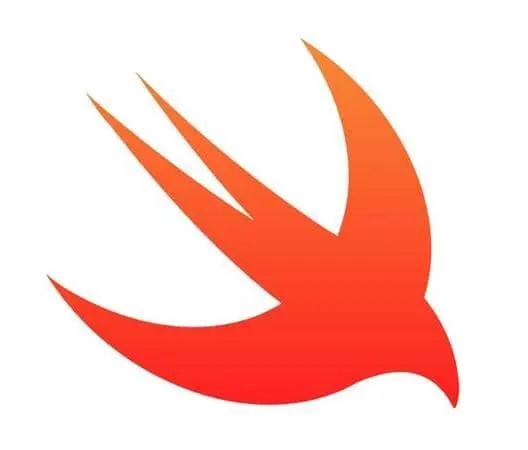Introduction to Mobile App Development
Mobile app development has become an integral part of our modern society. With the increasing demand for mobile applications, it has become crucial to select the right app development language. The choice of language can greatly impact the success and efficiency of your app.
In this comprehensive guide, we will explore two popular app development languages, Swift and Kotlin, and provide you with the necessary information to make an informed decision.
Importance of Selecting the Right App Development Language
Selecting the right mobile app development language is of utmost importance for several reasons. Firstly, the language you choose will determine the compatibility and performance of your app across different platforms and devices.
Secondly, it will affect the development process, including the ease of coding, debugging, and maintaining the app. Finally, the choice of language can impact the availability of resources, community support, and future updates for your app.
Therefore, it is crucial to carefully evaluate and compare different app development languages before making a decision.
Overview of Swift and Kotlin
Swift

Swift is an efficient and intuitive programming language developed by Apple. It is primarily used for creating iOS, macOS, watchOS, and tvOS applications. Swift was designed to be fast, safe, and efficient, with a focus on improving the developer experience.
It offers modern syntax, automatic memory management, and a vast library of frameworks and tools. Swift is known for its simplicity and readability, making it an ideal choice for both beginner and experienced developers.
Kotlin

Kotlin, on the other hand, is a statically typed programming language developed by JetBrains.
It is the preferred language for Android app development, offering seamless interoperability with existing Java codebases. Kotlin is known for its brevity, security and expressiveness.
It provides modern features like null safety, extension functions, and coroutines, which enhance productivity and reduce the likelihood of errors.
With its growing popularity, Kotlin has become a strong contender to Swift in the world of mobile app development.
Similarities between Swift and Kotlin
Despite being developed for different platforms, Swift and Kotlin share several similarities. Firstly, both languages are modern and feature-rich, offering a wide range of capabilities to developers.
They both support functional programming paradigms, allowing developers to write concise and expressive code.
Additionally, Swift and Kotlin provide robust type systems that promote compile-time safety and reduce runtime errors.
Both languages also have extensive standard libraries and frameworks, enabling developers to build robust and feature-packed applications.
Another similarity between Swift and Kotlin is their emphasis on developer productivity. Both languages have intuitive syntax and powerful tooling, making it easier to write, read, and maintain code.
They also support features like type inference, which reduces the need for explicit type declarations.
Furthermore, Swift and Kotlin offer interactive development environments, allowing developers to experiment with code and receive instant feedback.
Differences between Swift and Kotlin
While Swift and Kotlin share many similarities, they also have distinct differences that may influence your choice of language for mobile app development.
Firstly, Swift is primarily used for developing applications on Apple’s platforms, whereas Kotlin is designed for Android development.
Therefore, your target platform will play a significant role in determining which language is more suitable for your needs.
Another difference between Swift and Kotlin lies in their syntax and language features. Swift has a more C-like syntax, while Kotlin draws inspiration from Java. The choice between the two syntax styles is a matter of personal preference.
Swift offers features like optional chaining and pattern matching, while Kotlin provides features like extension functions and coroutines. Consider the syntax and features that align with your coding style and project requirements.
Performance is another crucial factor to consider when comparing Swift and Kotlin. Swift is known for its exceptional performance, thanks to its close integration with Apple’s frameworks and technologies.
On the other hand, Kotlin, being developed for the Java Virtual Machine (JVM), may have slightly lower performance compared to Swift.
However, the performance difference is often negligible in real-world scenarios and should not be the sole determining factor in choosing a language.
Performance Comparison between Swift and Kotlin
When it comes to performance, both Swift and Kotlin excel in their respective domains. Swift, being designed specifically for Apple’s platforms, offers unparalleled performance on iOS, macOS, watchOS, and tvOS devices.
Its close integration with Apple’s frameworks and technologies allows for efficient code execution and optimization.
This makes Swift an excellent choice for developing high-performance applications that leverage the full potential of Apple’s hardware.
Kotlin, on the other hand, offers impressive performance on the Android platform. Despite being developed for the JVM, Kotlin’s modern language features and optimized bytecode generation contribute to its efficiency.
Kotlin’s interoperability with Java also allows developers to leverage existing Java libraries and code, further enhancing performance.
Overall, both Swift and Kotlin deliver excellent performance and can handle the demands of modern mobile app development.
Community Support and Resources for Swift and Kotlin
When choosing an app development language, community support and available resources are crucial factors to consider.
A strong and active community can provide valuable insights, resources, and assistance throughout the development process. Both Swift and Kotlin have vibrant communities that actively contribute to their ecosystems.
Swift benefits from Apple’s extensive developer community, which provides comprehensive documentation, tutorials, and sample code. The official Swift website offers a wealth of resources, including guides, videos, and forums.
Additionally, numerous third-party websites, blogs, and online communities are dedicated to Swift development, making it easy to find answers to your questions and connect with fellow developers.
Kotlin, too, has a thriving community that actively supports and promotes the language. JetBrains, the creators of Kotlin, provide official documentation, tutorials, and a dedicated website for Kotlin developers.
The Kotlin community is known for its helpfulness and engagement, with active forums, online groups, and meetups.
Furthermore, Kotlin is backed by Google as a first-class language for Android development, ensuring continuous support and updates.
Popular Apps Built with Swift and Kotlin
Swift and Kotlin have powered numerous successful and popular applications across various industries. Here are a few examples of apps built with each language:
Swift
- Instagram: The popular social media platform, known for its photo and video sharing features, is built using Swift. Swift’s performance and robustness make it ideal for handling the immense user base and high traffic of Instagram.
- Airbnb: The leading online marketplace for vacation rentals relies on Swift to deliver a seamless and intuitive user experience. Swift’s modern features and extensive frameworks enable Airbnb to provide a feature-rich app to its users.
- Robinhood: The popular stock trading app, known for its commission-free trades, is developed using Swift. Swift’s performance and safety features contribute to the smooth execution of trades and the secure handling of sensitive financial data.
Kotlin
- Pinterest: The visual discovery and bookmarking platform is built using Kotlin for its Android app. Kotlin’s concise syntax and interoperability with Java allow developers to create a visually stunning and interactive app for Pinterest users.
- Trello: The popular project management and collaboration tool utilizes Kotlin for its Android app. Kotlin’s expressive and readable code enables developers to implement Trello’s extensive features while maintaining code maintainability.
- Evernote: The note-taking app, known for its synchronization across devices, employs Kotlin for its Android development. Kotlin’s null safety and coroutines help developers build a reliable and efficient app for Evernote users.
Factors to Consider when Choosing between Swift and Kotlin
When deciding between Swift and Kotlin for mobile app development, there are several factors to consider:
- Target Platform: Determine whether your app will primarily target iOS or Android devices. Swift is ideal for Apple’s platforms, while Kotlin is specifically designed for Android.
- Existing Codebase: If you have an existing codebase in Java or Objective-C, Kotlin and Swift respectively offer seamless interoperability, making it easier to migrate and integrate your existing code.
- Developer Experience: Consider your familiarity with the language and the available development tools. Choose a language that aligns with your coding style and provides a smooth development experience.
- Performance Requirements: Evaluate the performance demands of your app. Swift offers exceptional performance on Apple’s platforms, while Kotlin delivers impressive performance on Android.
- Community Support: Assess the availability of resources, documentation, and community support for each language. A strong community can provide valuable assistance and resources throughout the development process.
Conclusion and Final Thoughts
In conclusion, selecting the perfect language for mobile app development is a crucial decision that can greatly impact the success of your app. Swift and Kotlin are both powerful and feature-rich languages, each with its own strengths and target platforms.
Consider your specific requirements, including target platform, performance, and developer experience, when deciding.
Remember, there is no definitive answer to which language is better. The choice between Swift and Kotlin ultimately depends on your project needs, team expertise, and personal preferences. Both languages have vibrant communities and extensive resources to support your development journey.
Whether you choose Swift or Kotlin, rest assured that you are selecting a language that will empower you to create innovative and impactful mobile applications.

